English Fruits
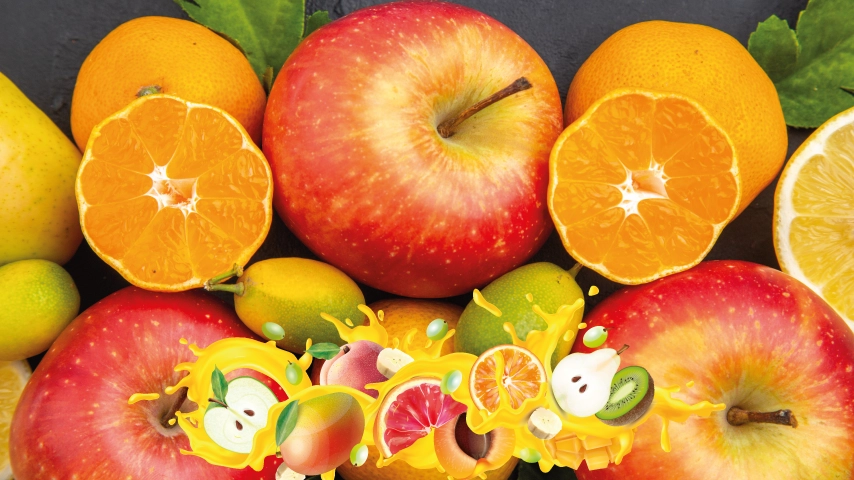
In this lesson on fruits in English, we will learn to make sample sentences about fruit names in English, the spelling and pronunciation of fruits in English, as well as examples of fruits in English.
We have prepared great visuals for you below. It is easier to learn English with pictures. You can easily learn the subject of fruits in English with our delicious and appetizing visuals. Here are the exquisite blessings our Lord has bestowed on us. First look at the English fruits illustrated explanation, then you will see the English fruits with their Turkish equivalents in a list. You will learn more about fruits in English as you scroll down to the bottom of our page.
English Fruits (with Pictures)
Table of Contents
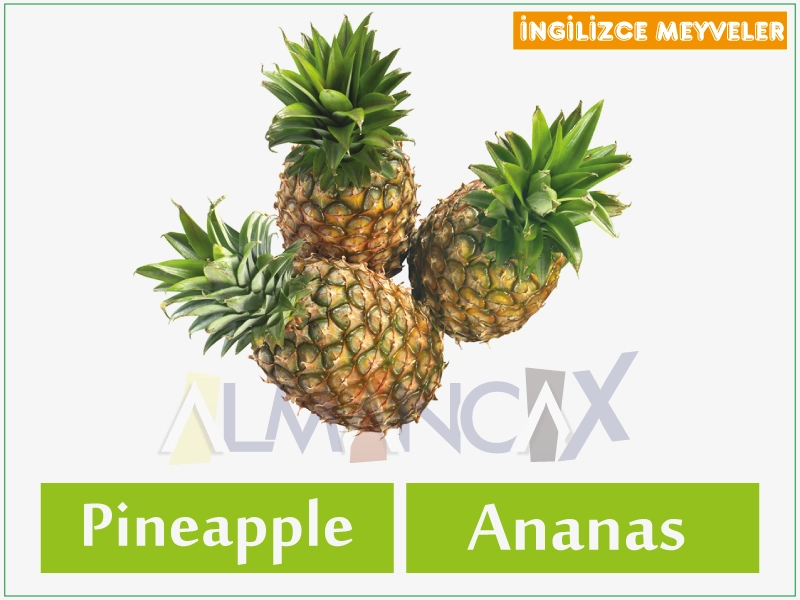
You may be interested in: Would you like to learn the easiest and fastest ways to make money that no one has ever thought of? Original methods to make money! Moreover, there is no need for capital! For details CLICK HERE
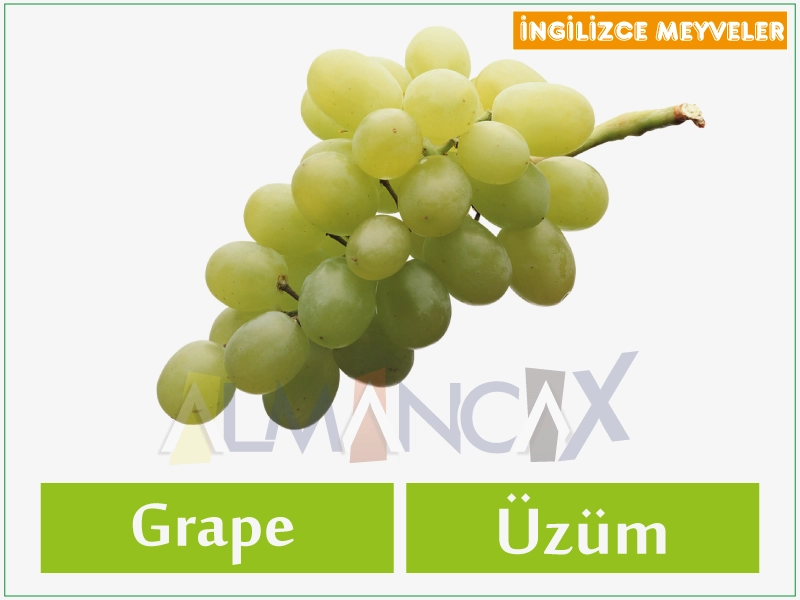
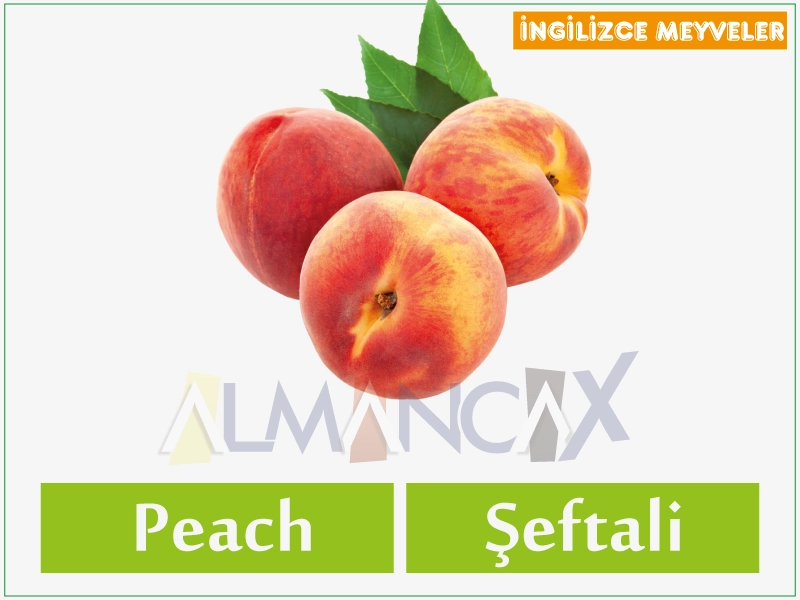
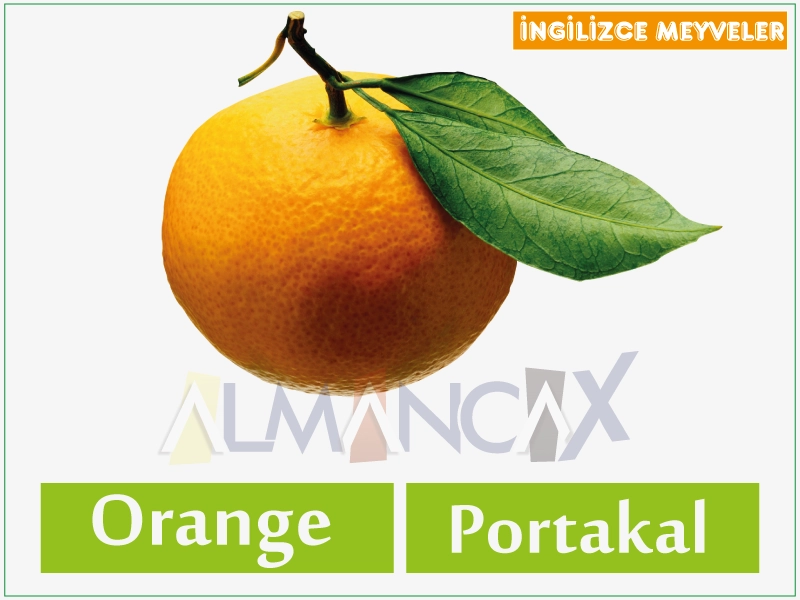
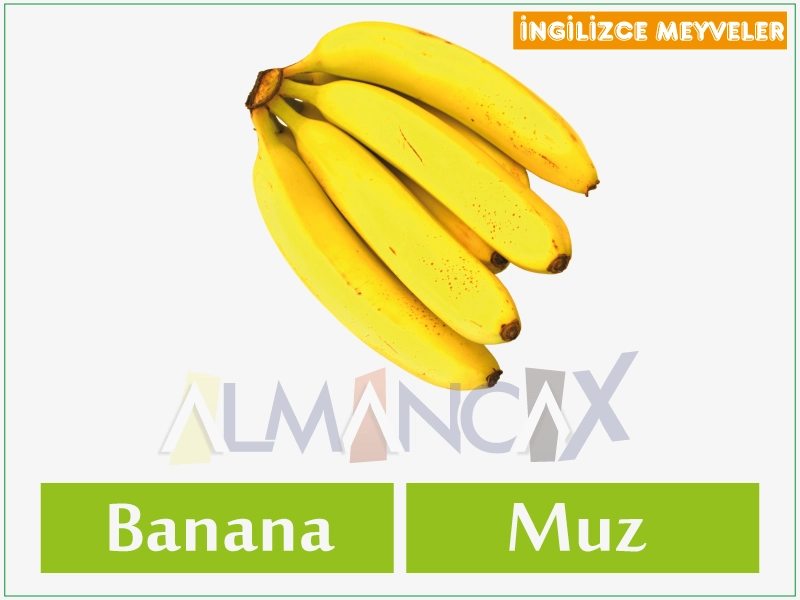

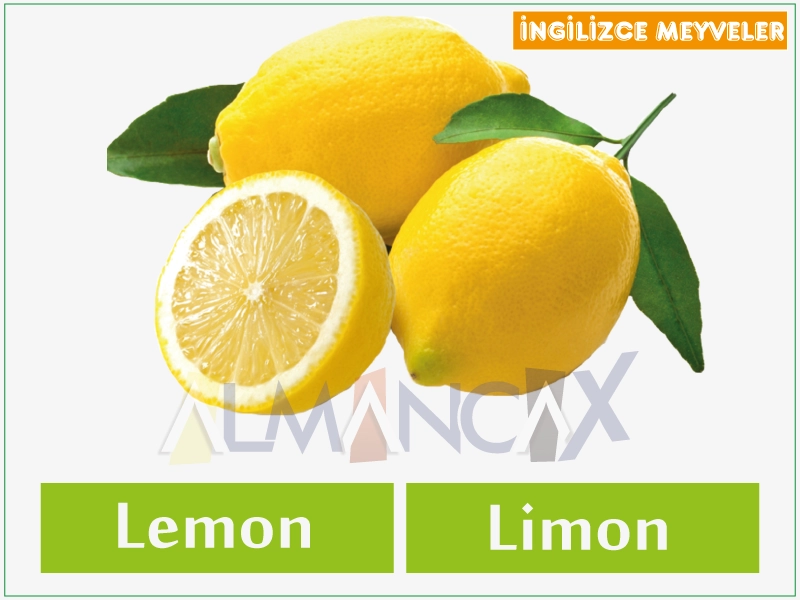
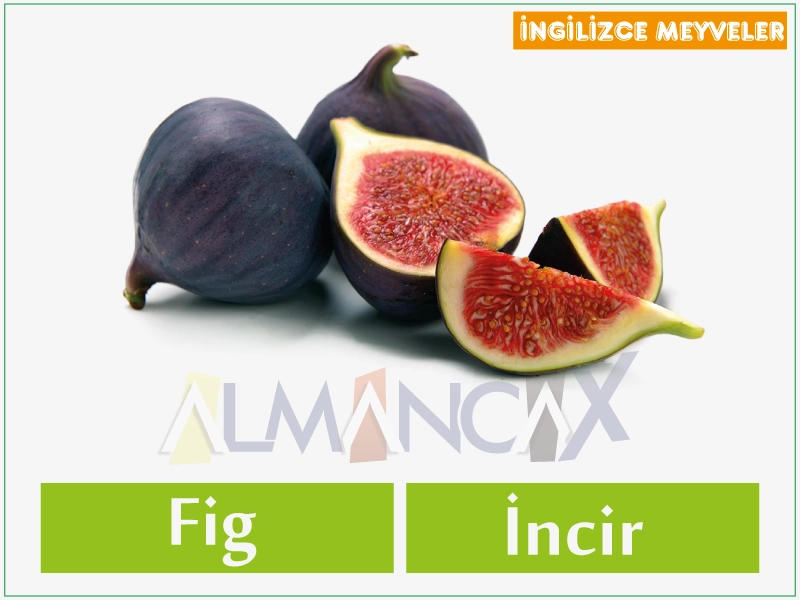
You may be interested in: Is it possible to make money online? To read shocking facts about earning money apps by watching ads CLICK HERE
Are you wondering how much money you can earn per month just by playing games with a mobile phone and internet connection? To learn money making games CLICK HERE
Would you like to learn interesting and real ways to make money at home? How do you make money working from home? To learn CLICK HERE
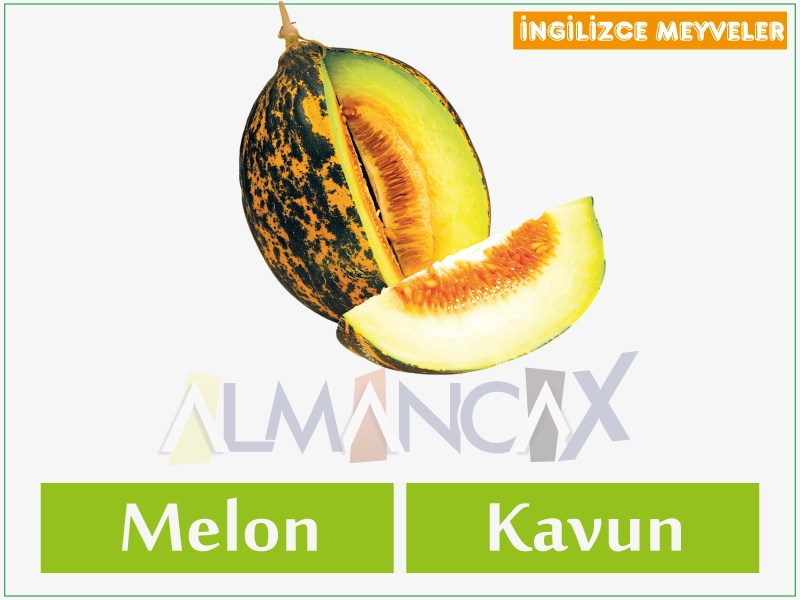
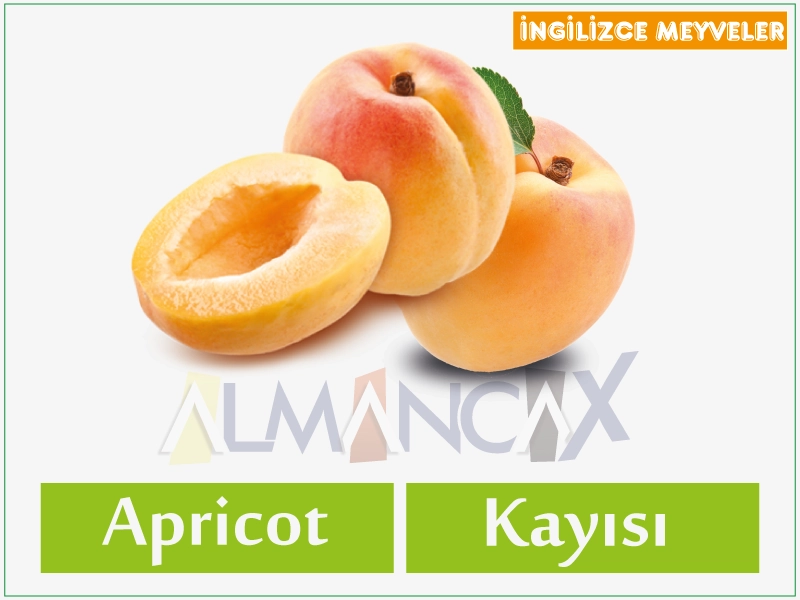
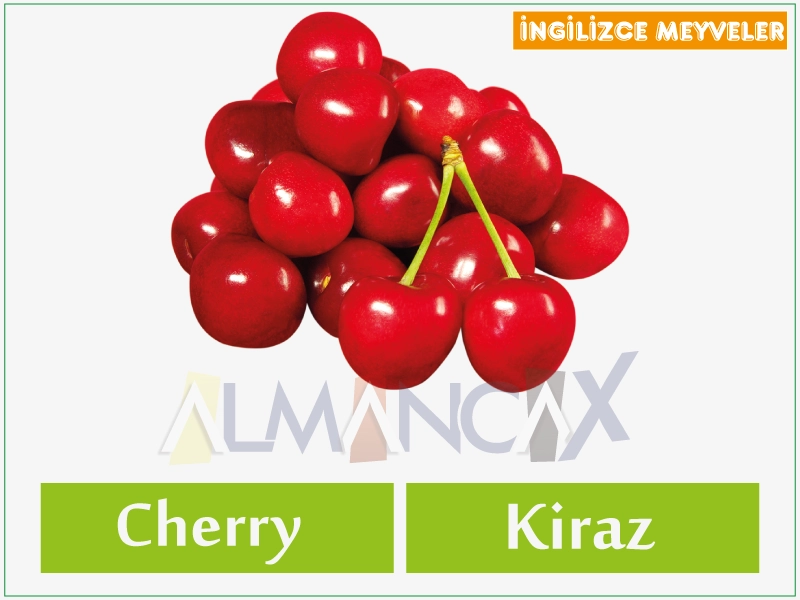
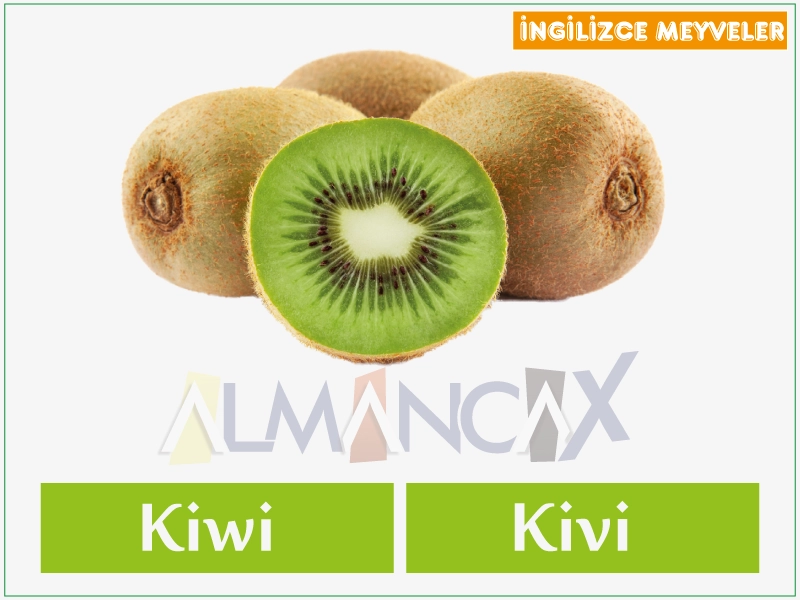
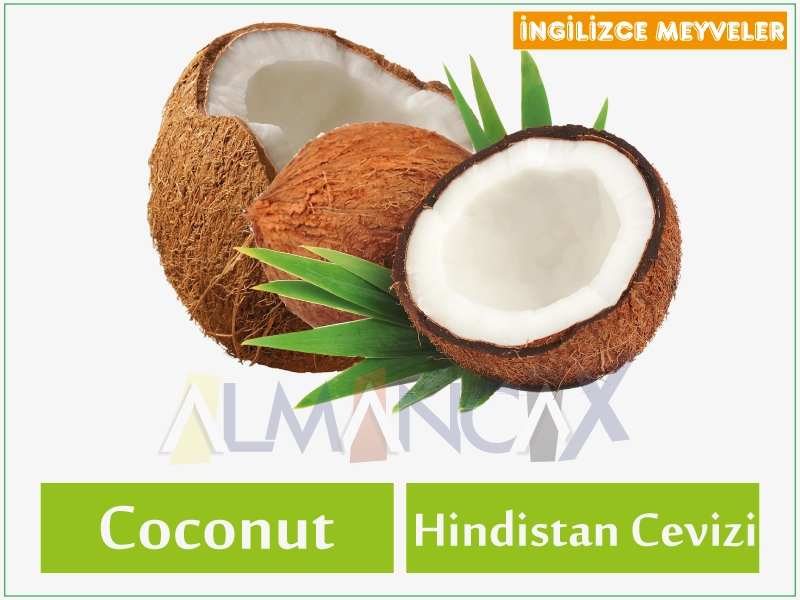
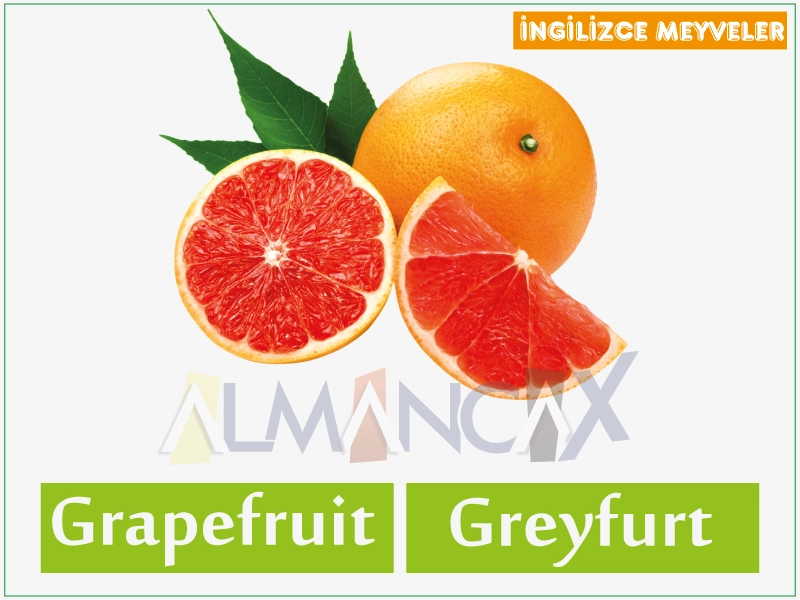
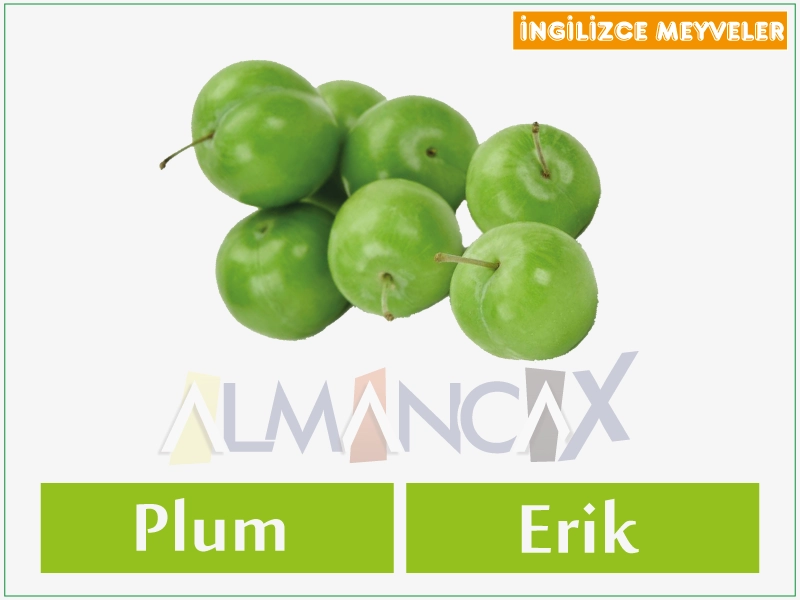
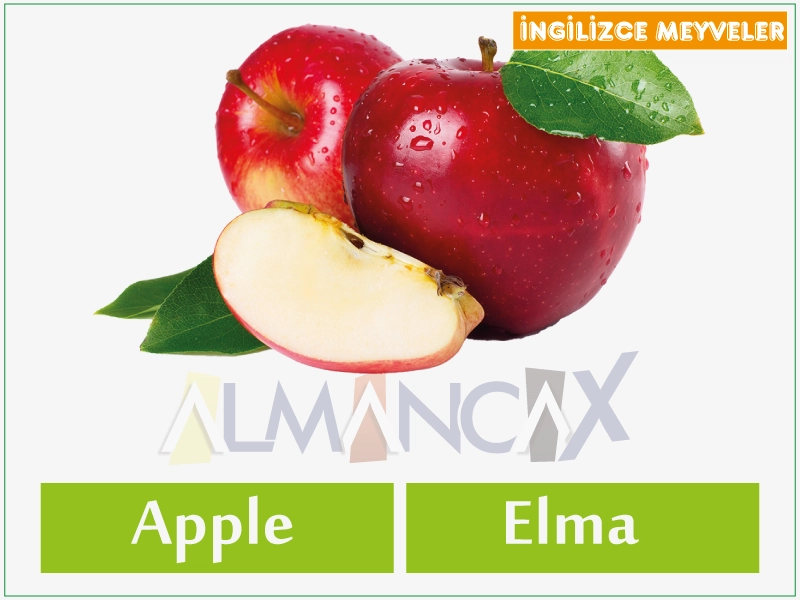
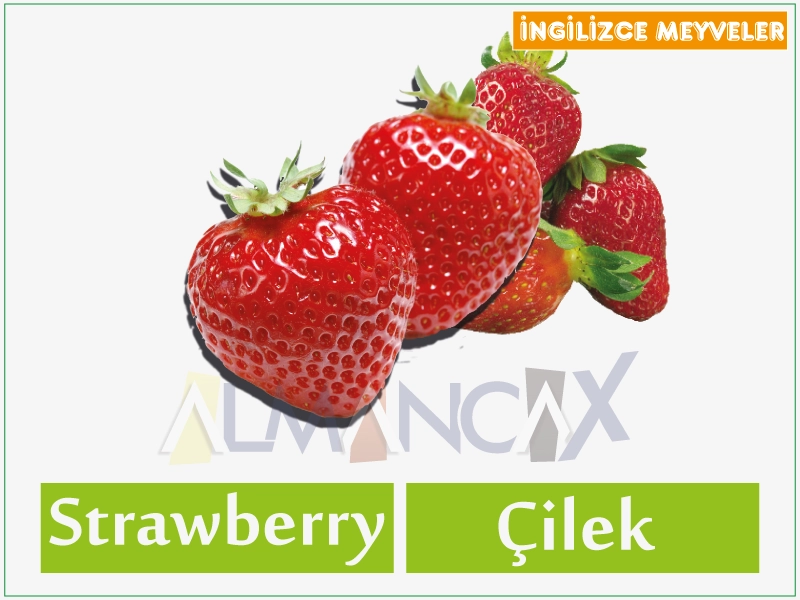
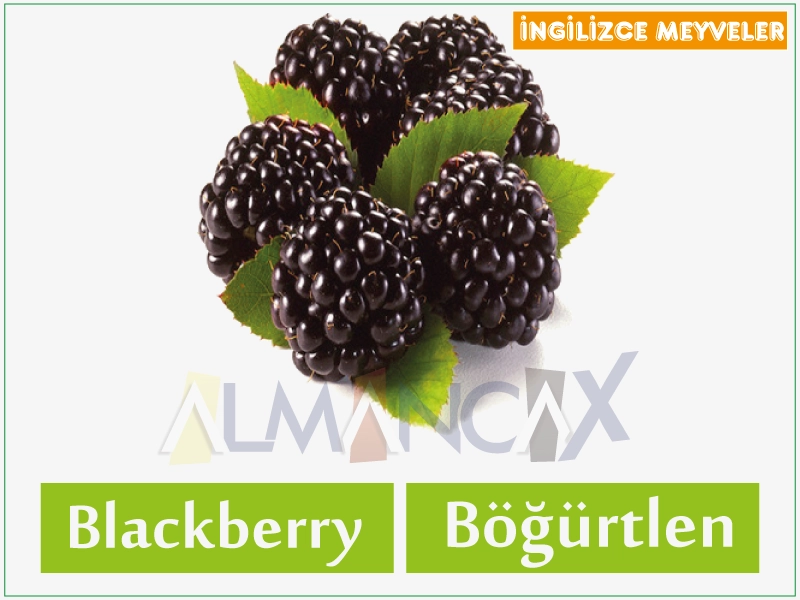
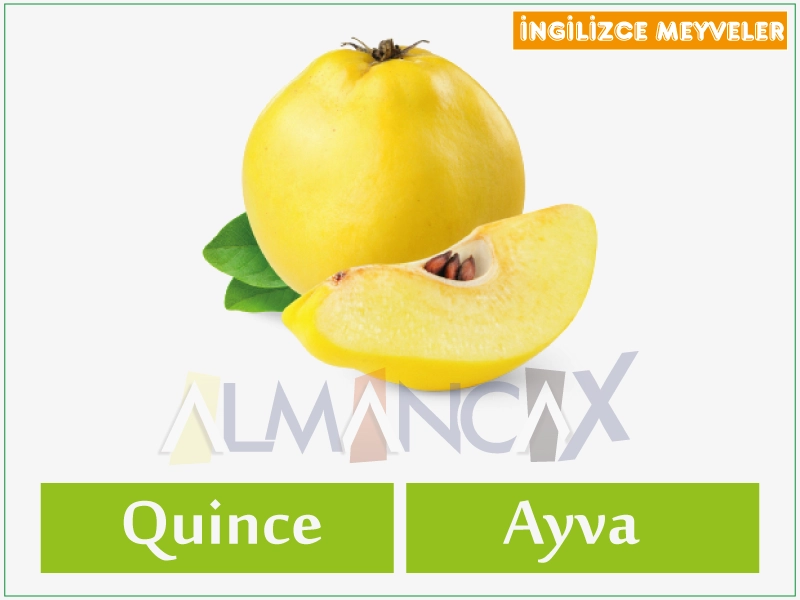
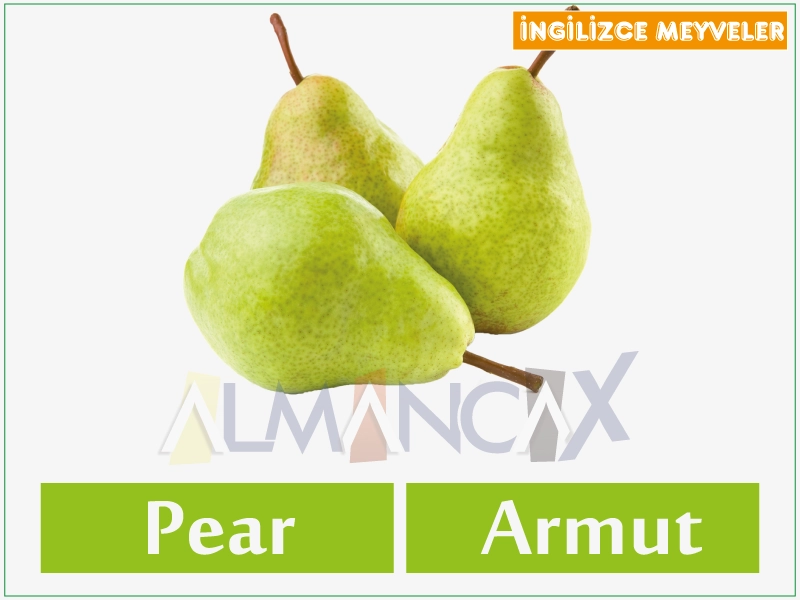
Most Common Fruit Names in English
As in all languages, fruit names are used extensively in English. However, some of these occur more frequently than others. These are seen as follows;
- Apple Lossless Audio CODEC (ALAC),
- Apricot
- avacado
- Banana
- Blackberry
- Blueberry
- Cherry
- Coconut
- Fig
- Grape
- Grapefruit
- Kiwi
- Lemon Soda
- Lime
- Mandarin
- Mango
- Melon
- Nectarine
- Orange
- Papaya
- Passion Fruit
- Peach
- Pear
- Pineapple
- Plum
- Pomegranate
- Fifteen
- Raspberry
- Strawberry
- Watermelon
It is recommended that you learn them while working, not memorizing them. Because memorizing will naturally cause you to forget, if you do not repeat it after a while. Thus, the whole process will be lost, and time will be wasted.
So, what are the Turkish equivalents of these words and how are their pronunciations?
Fruit Names and Pronunciation in English
The topic of pronunciation is one of the big problems, especially among students and those who are new to English. One of the reasons for this is that due attention has not been paid to the issue. However, a wrong pronunciation can have different meanings in some cases.
The equivalents of the fruits in English listed above and how they are pronounced are as in the table below.
| Fruits | Turkish Names | Pronunciation |
| Apple Lossless Audio CODEC (ALAC), | Apple | Epil |
| Apricot | Apricot | Eprikit |
| avacado | Avocado | Avocado |
| Banana | Banana | Building |
| Blackberry | Blackberry | Wristband |
| Blueberry | Blueberries | Blubery |
| Cherry | Kiraz | chery |
| Coconut | Coconut | Coconut |
| Fig | FIG | Fig |
| Grape | Grape | Grey |
| Grapefruit | Grapefruit | grapefuryt |
| Kiwi | Kiwi | Kiwi |
| Lemon Soda | Limon | Lemin |
| Lime | Lime | Lime |
| Mandarin | Tangerine | Moistine |
| Mango | Mango | mengo |
| Melon | Melon | Melin |
| Nectarine | Nectarine | Nectrin |
| Orange | Orange | Orinc |
| Papaya | Papaya | Papaya |
| PASSION Fruit | Passion Fruit | Advance Furiyt |
| Peach | Peach | Bastard |
| Pear | poverty | Pierre |
| Pineapple | Pineapple | Paynepil |
| Plum | Erik | pylam |
| Pomegranate | Pomegranate | Pomegiranite |
| Fifteen | Quince | quins |
| Raspberry | Raspberry | Razbery |
| Strawberry | Strawberry | Sitrowbar |
| Watermelon | Watermelon | Wotramel |
Table I: Fruits in English, their Turkish and their pronunciation
Learning these will improve your vocabulary and enable you to use the language more actively.
English Fruits
While learning English, vocabulary is very important as well as grammar knowledge. In order to speak fluent English, it is necessary to have a high vocabulary. In this article, you can read the meaning of fruit names in English and how to use them in your everyday conversation.
English fruits vocabulary list You can see the meanings of the most used fruits. Remember to study these words often, both by writing and speaking, to fully embrace the correct pronunciation. Practice saying each word out loud will help you learn English more easily.
Let's start with a general mistake. In botanical science, the classification of plants as fruits and vegetables is what many people wrongly know. Fruits and vegetables are classified according to the part of the plant they come from. A fruit has a seed that comes from its flowering plants. Vegetables come from the roots, bulbs, leaves and stems of the plant. We often describe some of these fruits as "vegetables" (eg tomato, avocado, eggplant) but these are actually fruits.
It has commercial value as it is also used in finished foods such as fruit, jam and marmalade. In fact, not all fruits are edible. On this page, you can find common kitchen fruits with their meanings.
Learning Fruits in English
Be sure to practice every new word you come across. Especially try to answer these questions about your daily life in English.
- Which of these are your favorites?
- Is it easy to buy fresh fruit where you live?
- What fruits have you never tried?
Take out a piece of paper to practice and write a few paragraphs to improve this vocabulary (it will help you remember words more easily). You can also practice by speaking out loud to yourself or with a friend.
Fruits in English Sentence Examples
- It is a banana.
- These are melons.
- This is a kiwi.
- There are four oranges in the basket.
- I like apples
- I don't like mango.
- He doesn't like lemon.
- Tangerine is a citrus fruit.
- You should eat fruit every day.
- I bought a kilo of apples.
- I like dried fruit.
- She likes eating fresh fruit.
- Sally likes fruit juice.
- This fruit has a nice smell.
- There are a lot of fruit trees in the garden.
- Melon is a summer fruit.
First, try to translate the sentences above into Turkish yourself. Then check with the following to check your mistakes. The meanings of the sentences about these English fruits are as follows.
Turkish Meanings
- This is a banana.
- These are melons.
- This is a kiwi.
- There are four oranges in the basket.
- I like apples.
- I don't like mangoes.
- He doesn't like lemons.
- Tangerine is a citrus fruit.
- You have to eat fruit every day.
- I bought a kilo of apples.
- I like dried fruit.
- He likes to eat fresh fruit.
- Sally likes fruit juice.
- This fruit has a nice scent.
- There are many fruit trees in the garden.
- Melon is a summer fruit.
Fruits in English Questions
- What is this? - This is an orange.
- Do you like quince? - Yes, I like quince.
- Does Emma like apricot? - Yes, she likes apricot.
- Would you like some fruit? - Yes, please.
- Which fruit do you like most? - I like oranges most.
- Do you peel an avocado? - Yes, I do.
- What is your favorite fruit? - My favorite fruit is cherry.
- How much is a kilo of strawberries?
- Where does coconut grow in the world?
- How do you eat pineapple?
Turkish Meanings
- What is this? - This is an orange.
- Do you like quince? - Yes, I like quince.
- Does Emma like apricots? - Yes, he likes apricots.
- Would you like some fruit? - Yes please.
- Which fruit do you like best? - I like oranges the most.
- Can you peel an avocado? - Yes, I will.
- What is your favorite fruit? - My favorite fruit is cherries.
- How much is a kilo of strawberries?
- Where does coconut grow in the world?
- How do you eat pineapple?
Fruits Sample Text in English
Fruits are really good for our health. Everyone should eat them habitually. There are many reasons for this. First, you don't need to cook them. Second, it is very easy to find. Third, they have fiber that is very good for digestion. In addition, fruits have low calories. So you don't gain weight. Moreover, fruits prevent some diseases such as heart disease and cancer. Beside these, fruits have vitamins and minerals. Lastly, fruits have very good taste and smell. You have many reasons to include fruits in your food habits.
Using Like / Don't Like
When we say whether we like fruits or not, we use the word "like" for fruits we like and "don't like" for those we do not like.
Sample sentences on this subject;
- I like apple / Ay lik epıl / I like / love apples.
- you like quince / yu like kuins / You like / love quince.
- We like strawberry / wi like cytrober / we like / we love strawberries.
- you like cherry / sweet cherry / you like / you like cherries.
- He like banana / hi like bınena / He likes / loves banana.
- She like orange / shi lik orınc / He likes / loves orange.
- They like bowler / Deylik malın / They like / love melon.
Now let's give examples of negative sentences:
- I don't like Apple / I don't like apples.
- We don't like We don't like quince / Quince.
- He don't like plum / He doesn't like plum.
- They don't like bowler / They don't like melon.
- you don't like pear / You don't like pear.
English Fruits for Primary Education
For elementary school students, they fondly learn the subject of fruit in English. Learning fruit names can be a lot of fun for kids, here is a list of fruit names in English that you can practice with your little ones.
Especially for elementary and preschool children, learning English can be easier with songs and videos. Here is a fun and simple English fruit song lyrics we will share. You can sing this song with your students or your child so they can practice.
"The Fruits Song" Lyrics
I love oranges.
They're orange and round I really love them.
They're Juicy and sweet and so tasty!
Oranges are great for me!
Bananas, Bananas, Bananas!
They're scrumptious and my favorite.
They're curved and yellow with a very thick skin.
Bananas are great for me!
There are so many different kinds of fruit.
Can you name a few?
Bananas, Kiwis, Strawberries, Peaches, Apples.
So many different colors, shapes and sizes.
Cherries, Grapes, Melons, Pears, Pineapples and more!
Strawberries are really yummy.
They make me want to rub my tummy.
They're red and juicy and so tasty!
Strawberries are great for me!
Grapes Grapes Grapes are in bunches!
They come in different colors, Black, Red or Green!
They're very small and tasteful, An easy snack!
Grapes are great for me!
There are so many different kinds of fruit.
Can you name a few?
Bananas, Kiwis, Strawberries, Peaches, Apples.
So many different colors, shapes and sizes.
Cherries, Grapes, Melons, Pears, Pineapples and more!
I love watermelon. It's the juciest fruit of all.
it's green on the outside and red on the inside.
Watermelons great for me!
I love Pineapple pieces.
They're delicious and sweet I really love them.
They're yellow and unique and so tasty!
Pineapple is great for me!
There are so many different kinds of fruit.
Can you name a few?
Bananas, Kiwis, Strawberries, Peaches, Apples.
So many different colors, shapes and sizes.
Cherries, Grapes, Melons, Pears, Pineapples and more!
Whether you are trying to find your favorite fruit at the supermarket or want to talk about which fruits you like and don't like, you will need to know the names of the fruits in English. There are many different fruit names to learn but that doesn't mean it's an impossible task, you can learn the English meaning of any fruit in a short time by learning a few at a time.
Dear friends,
As you know, learning a language, especially English, has gained great importance today. Globally used English is one of the most important of these. Words are one of the biggest helpers in learning English. The more words that are known, the more sentences that can be formed.
English Fruits are among the elements that take up the largest space, although they may seem trivial most of the time. Because English fruits are frequently mentioned in daily life. Although it is known that there are many fruits in the world, their English names are not known most of the time.
In this case, a big problem arises if a sentence containing fruit names is to be made. It also makes it difficult to understand a text that contains fruit names. So one of the first things you should do when learning English is fruit in English. If you are just starting out and looking for a place for all the fruits on the list, just take a look at our table.
Correct pronunciation in every language is very important. Because the wrong pronunciation may not be understood by the other person. In this case, communication will not be possible. For this reason, you can learn how to read the words in question from our table.
What Should Be Considered When Learning English?
There are many mistakes when learning English. Faulty learning will affect the language learning process more negatively. Because it is very difficult to correct something that is misunderstood. Many people nowadays take courses to learn English. Getting such professional training will teach you this language properly. However, it is not possible to get results if you do not try to learn it yourself.
For this, the lessons taught on that day should be repeated every day, and personal effort should be made. If you leave the training in other words, the results will be very low.
How to Teach Children English?
Language education should be done differently between each age group. If this is not paid attention to, people will not be able to benefit from the education they will receive.
When teaching English to kids, you need to make it more fun and visual. Most people think of videos and English cartoons here. However, the efficiency of learning with videos will be lower because children's English is not yet improved.
Because while learning a language, children should examine and learn the word they see. The main reason for this is that children cannot follow subtitles and speech at the same time.
For this, it is recommended that you purchase English comic books and storybooks suitable for children. Since these elements are visually based and the English equivalents of the objects are written on them, more efficient learning will be done. For example, when the word "banana" appears under the picture of "banana", it will be understood what it is, even if it is not written in Turkish.
Thus, more effective solutions will be obtained as children's education is supported by visuals. However, this is true if the children are very young. Support can be obtained from English videos and movies while memorizing words at an older age. However, there should not be Turkish subtitles here. Because in this case the brain is automatically directed here.
In addition, it should be used in daily life regardless of the age group of the student. Young children can be of great help by practicing vocabulary daily with their parents. People of a certain age group can easily do this with daily repetitions.
How to Teach English to Teens?
Picture books will be both simple and boring for young people if language learning is to be done. For this reason, in order to get efficiency, it is necessary to turn to more professional preferences and to differentiate the methods. For this, language training is recommended.
However, it is also important to get the right education while learning a language. In schools, lessons should be done correctly and appropriately, and homework should be completed without delay. Otherwise, if it is not done again, the issues will be forgotten, so the results will be low.
It is also a good solution to get professional education outside of schools and to enroll in a language course. Because those who teach in these institutions generally speak their mother tongue. Thus, people can take more effective lessons directly from those who speak their own language. Word memorization, on the other hand, is a practical task that anyone can do alone.
However, this is not the case in situations such as learning grammar and the structure of sentences. Since these cannot be learned alone, it would be more appropriate to receive professional training.
For this, it is recommended to do a research before enrolling in the course. Because there are many institutions that provide English education today. However, not all of them are of the same quality. What you need to be aware of here is which instructors provide training, the documents they have, and whether they speak their native language.
Therefore, you should examine the education policy of the institution. This information is written on their site. Today, many institutions and companies maintain their own sites. Here, he gives detailed information about themselves and the services they provide. Issues such as how the courses are delivered in a language course, how many hours and what is the re-entry status are of great importance.
Therefore, most language organizations post this information on their websites. It is possible to obtain all the necessary information by checking them and reading them in detail.
Taking all these into account will help you learn English and English fruits better. However, not all of them, as we mentioned, are limited to this. All of this will be insufficient if you don't make an effort yourself.
Therefore, repeating words alone at home will help you achieve greater efficiency. The fruits we give you in English are very important topics for you to learn the fruits used in daily life.
